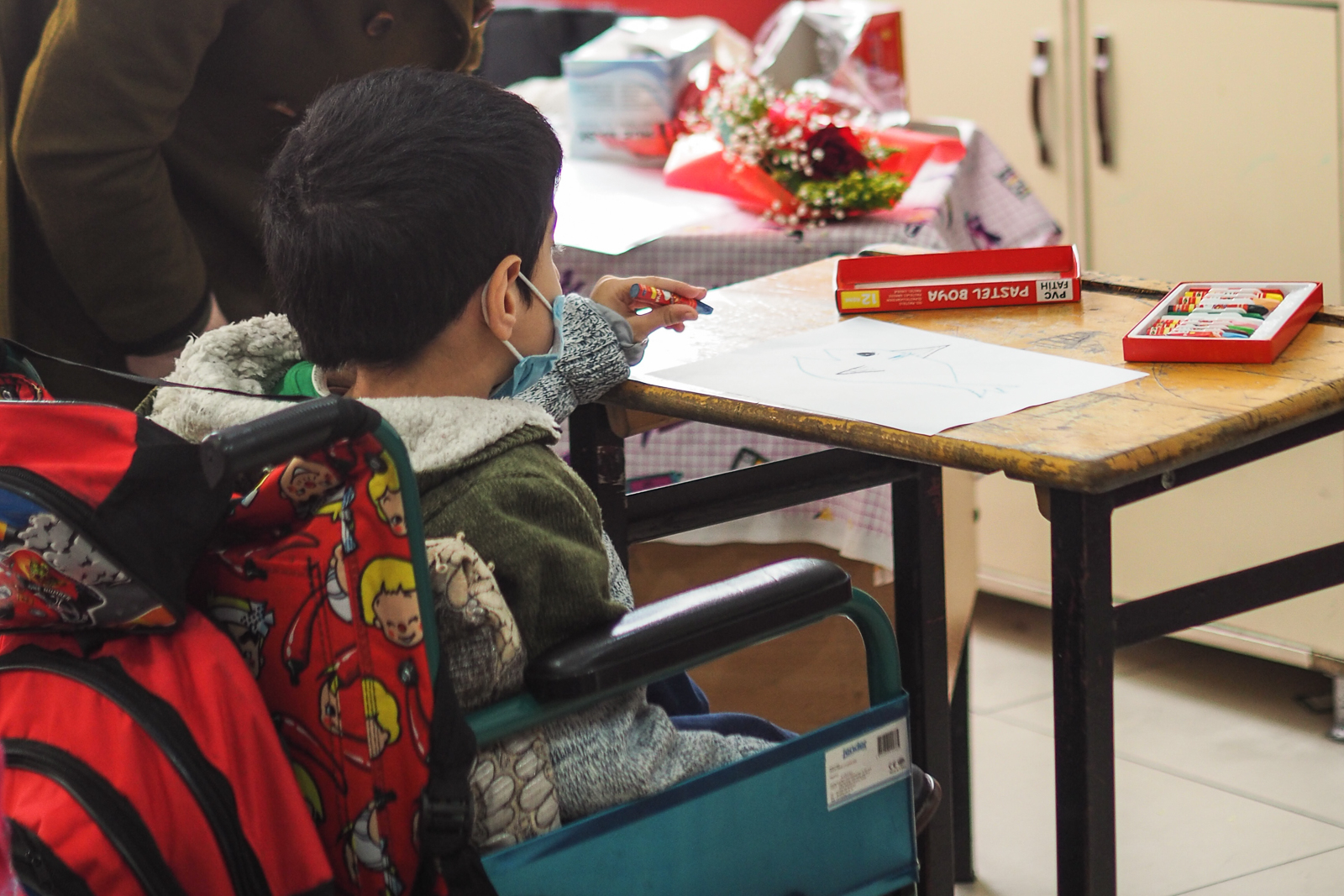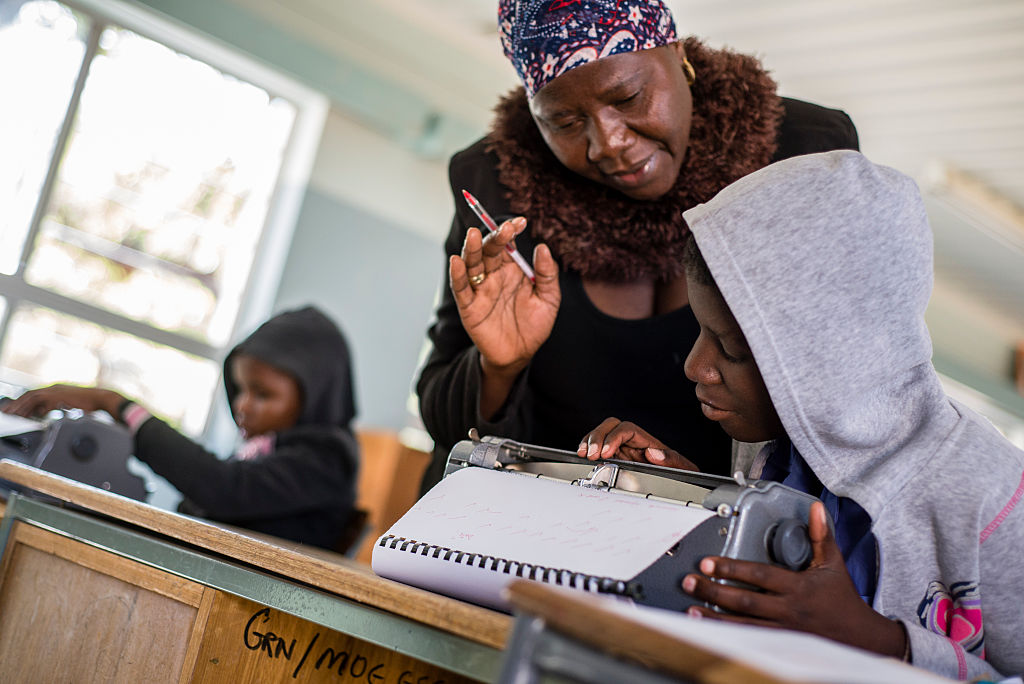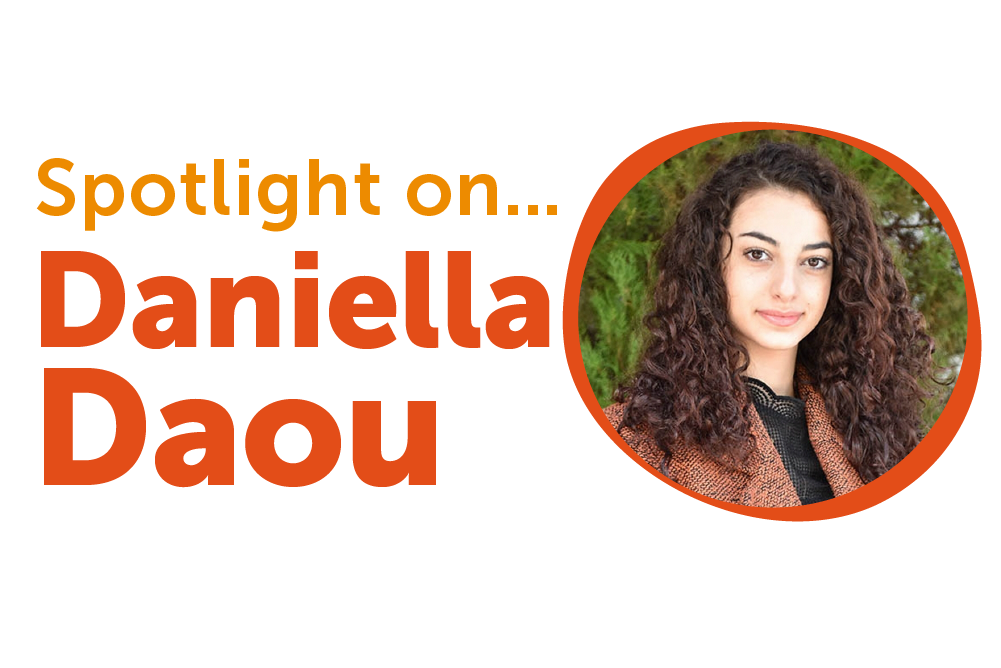
Focus on inclusive education as UK launches global disabilities strategy
Children with disabilities, Right to education
Tackling stigma and empowering girls are among the key aims of a five-year plan to ensure disabled people in developing countries aren't left behind.
More than half of all children with disabilities in the world’s poorest countries do not go to school. And those who are in the classroom often learn less than the other students because they are treated unfairly.
That’s the challenge. What’s needed is meaningful and lasting change.
The United Kingdom co-hosted the first Global Disability Summit in July and promised to lead the way on ensuring no disabled person is left behind.
At the summit, disability rights advocate Miah Farah from Lebanon said: “Inclusive education means learning at the same school with the same teachers and playing together.”
On International Day of Persons with Disabilities this week, the UK’s Department for International Development (DFID) revealed a five-year strategy to help children and others with disabilities in developing countries to fulfil their potential.

“The UK, and the world as a whole, has made far too little progress up to now in tackling the root causes of the stigma, discrimination and abuse that hold people with disabilities back,” said International Development Secretary Penny Mordaunt.
She promised DFID will work to ensure more children have access to quality inclusive education from early childhood learning to higher education.
Mordaunt said the strategy was “setting the bar high, not just for ourselves – but for all development agencies, suppliers and governments”.
DFID’s Strategy for Disability Inclusive Development 2018-2023 covers all aspects of ensuring people with disabilities are not left behind.
It says the focus will be on tackling stigma and discrimination, empowering girls and women, and providing access to assistive technology.
On education, the strategy says: “The World Report on Disability found that in low-income countries, only 33% of girls with disabilities and 46% of boys have completed primary school education, compared with 42% of girls and 56% of boys without disabilities.
“There are multiple reasons for this, such as entrenched stigma and discrimination, lack of trained teachers, inaccessible school facilities or a lack of assistive devices, inadequate water, sanitation and hygiene (WASH) facilities, or long distances to school.”
DFID says its targets on education include:
- Keeping promises to support millions of children with disabilities who are out of school
- Ensuring all school buildings funded by DFID are accessible
- Scaling up its inclusive education programming to support the most disadvantaged girls and boys with disabilities – including working with the governments of Ethiopia, Jordan, Rwanda, Pakistan, Tanzania and Bangladesh
- Sharpening its focus on the education of highly-marginalised girls with support including counselling, mentoring and teacher training
- Placing a greater focus on mental health and psychosocial support, including in its education in emergencies work
DFID’s successes already include providing an education to 46,000 girls with disabilities through the Girls’ Education Challenge and constructing accessible toilet facilities in schools in Mozambique.
More news

Technology has the power to expand education for children with disabilities
